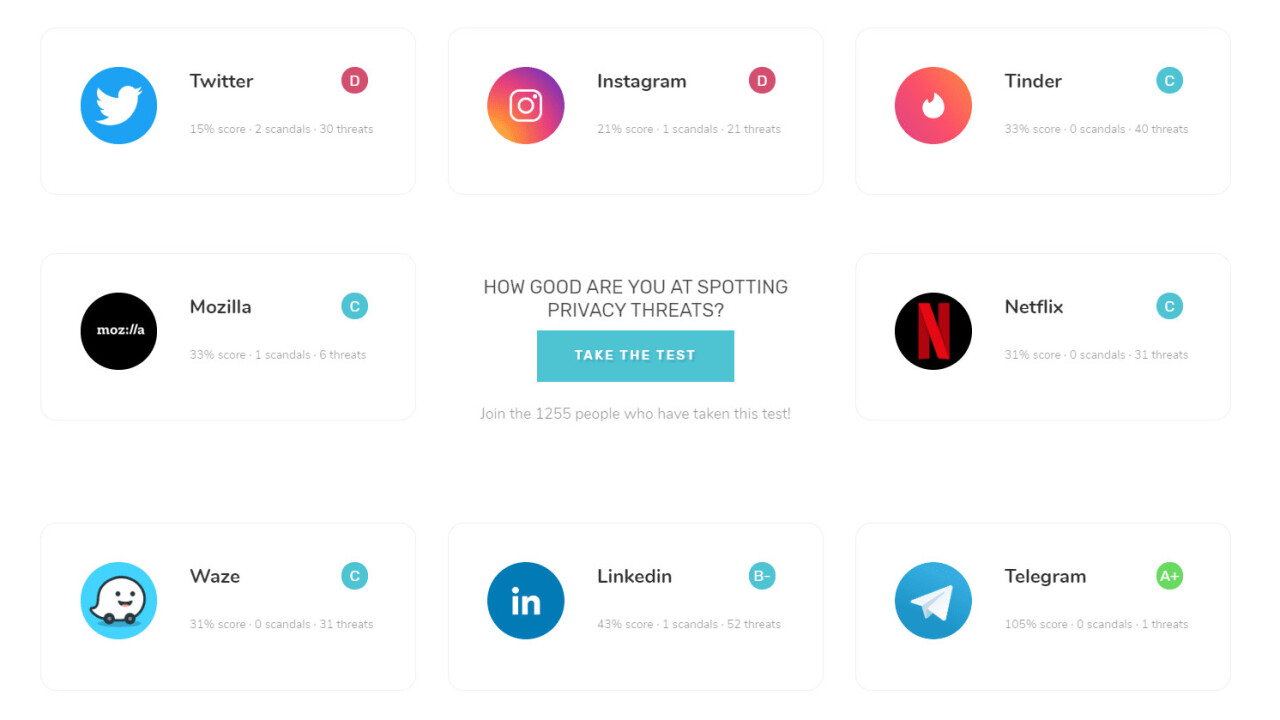
Don’t you absolutely hate how dense and confusing privacy policies are? Considering they’re full of gotchas and intentionally obscure legalese, it’s no surprise that hardly anyone bothers to even read them — we’ve simply accepted we’re giving up our data, and with it, our sense of privacy.
But thanks to this new policy-reading AI, things won’t have to be this way for much longer. Guard is a recurrent neural network-based app that reads and analyzes privacy terms, so you don’t have to. While it can’t yet examine policies on request, the AI has rated the privacy terms of a slew of popular services like Netflix, Instagram, Twitter, and Tinder.

What’s particularly nifty about Guard is that it not only gives an overall score, but also breaks down the main threats included in privacy policies. It also lists the total number of threats, and looks at past privacy scandals a service has been involved in.
Like I already said, Guard has only analyzed the privacy policies of a small batch of popular services, but you can easily suggest new apps for consideration.
The app was built by developer Javi Rameerez, who created the software as part of his thesis on AI and natural language processing. You can read more about the tech behind it here.
Just a heads-up: it seems the AI doesn’t always catch privacy concerns — so you should probably do your own research.

Take Telegram, for instance. Guard awards it an ‘A+’ grade and a score of 105 percent, noting the messenger “does not have any concerning privacy threats,” nor has it been involved in any privacy scandals.
As we recently reported, though, Telegram had to fix a bug that accidentally stored images on recipients’ phones even after using the ‘unsend’ feature. On another occasion in 2015, Telegram suffered from a flaw that made it possible to stalk users.
However, these shortcomings will hopefully wane as the AI keeps learning — and this is where your input can be of help. Guard is running a quick test where humans can give it directions on which privacy policies are more user-friendly. That ought to help the AI more efficiently identify potentially damaging privacy terms.

Go give it a hand if you’ve got some time to waste. Considering it could save you the nuisance of having to read privacy policies one day, you’d be doing yourself a favor. Check out Guard by clicking here.
Get the TNW newsletter
Get the most important tech news in your inbox each week.





